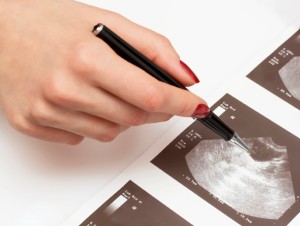 To begin, PCOS is short for Polycystic Ovarian Syndrome. It is an endocrine disorder that occurs among a significant percentage of women around the world (5-10% of Women ages 12 to 45) and yet is rarely spoken of. This syndrome is characterized by irregular menstruation, acne, excessive male-pattern hair growth (or hair-loss in some cases), and high cholesterol levels. It is one of the leading causes for sub-fertility among women of reproductive age. Many women go undiagnosed until they face difficulties while trying to conceive.
To begin, PCOS is short for Polycystic Ovarian Syndrome. It is an endocrine disorder that occurs among a significant percentage of women around the world (5-10% of Women ages 12 to 45) and yet is rarely spoken of. This syndrome is characterized by irregular menstruation, acne, excessive male-pattern hair growth (or hair-loss in some cases), and high cholesterol levels. It is one of the leading causes for sub-fertility among women of reproductive age. Many women go undiagnosed until they face difficulties while trying to conceive.
One reason why this condition is enveloped by so much mystery is that many women who suffer from it might either not know it, or are too enveloped in the stigma and shame of its symptoms to even speak out about it. Undeniably we live in a society where femininity is highly associated with thinness, corporal hairless-ness, a thick mane, and of course a high degree of fertility. It is often a source of shame for women who do not fit into this description, and quite often are too embarrassed to seek medical attention. This may mean that the reported cases of PCOS is underrepresented the number of women with PCOS.
Furthermore, women who do report their symptoms to their doctors are often caught in the mystery that surrounds the disorder, and may not receive the attention they need right away as it may be confused with other problems that create similar symptoms. It is important to note that Polycystic Ovarian Syndrome is not the same as Ovarian Cysts, while the former characterizes a situation where ovaries are laden with underdeveloped follicles due to an imbalance of hormones, the latter refers to an actual cyst on the ovaries. In the past, many women who presented symptoms of cystic ovaries, yet had no manifestations of such, were sent home with birth control pills for their troubles and no clear explanation of what they suffered from. Today there is more information on the topic and most women will have the wonderful experience of landing themselves in the office of an empathetic doctor who will aid the woman in navigating this frustrating condition, while unfortunately others will have to work with doctors who may not know enough about PCOS, and may minimize the experience of the patient by not realizing the degree of distress it can cause on a woman. In either case, these doctors are often the gatekeepers to the next level of treatment which can mean endocrinologist and/or fertility specialists. At this point, these women will find themselves at the beginning of a long and torturous journey inside the world of diagnostic tests involving multiple pelvic and intra-vaginal ultrasounds, as well as many blood tests.
It is important to note that not all women who suffer from PCOS are looking to become pregnant, but that reason why these women get the most attention in the world of PCOS is because most of these women who have PCOS do not realize it until they are trying to become pregnant month after month to no avail. This is why the majority of treatments available are for women who are trying to conceive, because other women who complain of hormonal challenges are usually encouraged to take birth control with androgen blockers for their PCOS symptoms. Having said that, birth control pills will only mask the symptoms of PCOS, which will inevitably return if the woman in questions ceases her birth control regimen. This is why most experts recommend PCOS be dealt with at a holistic level by addressing diet and exercise. Most women with PCOS have insulin resistance (similar to people suffering of Type 2 Diabetes—these two are closely related), and should avoid foods with high glycemic indexes (simple sugars such as sugar, white rice, white bread, pasta etc…) because their body has a higher difficulty when metabolizing them. Due to this, dramatic weight fluctuation is actually a prominent symptom of PCOS. Most women will see a reversal of their symptoms when their weight regulates to a healthy level for them (which varies from woman to woman). Needless to say, the symptoms are most pronounced among women who are over-weight and while weight-loss is definitely harder for women with PCOS, it is not impossible. An anonymous “Cyster” (a widely adopted moniker used among online community groups for women living with PCOS) suggests strength training to rev up the metabolism, noting it is just as important as cardio.
“The most important thing,” says the “Cyster,” “is to never lose hope, and to explore treatments which you feel comfortable with.” While most women turn to medication to treat symptoms, there are many women who turn to alternative medicine such as acupuncture and report a high incidence of success. In addition, it is important to take care of one’s mental health when considering all the stress associated with PCOS. There are many online support groups and forums that exist to help women around the world living with PCOS such as soulcysters.com. If you suspect you or someone you love may be suffering from symptoms of PCOS, do not hesitate to visit your family doctor to discuss your symptoms. Happy healing.